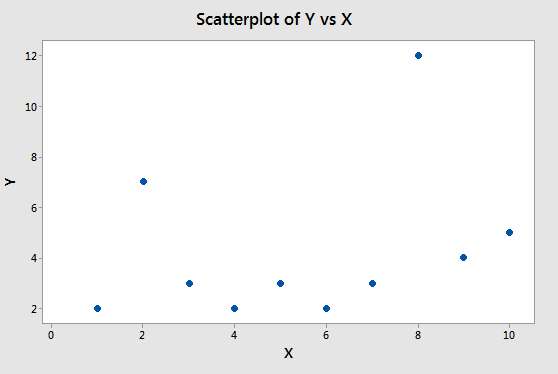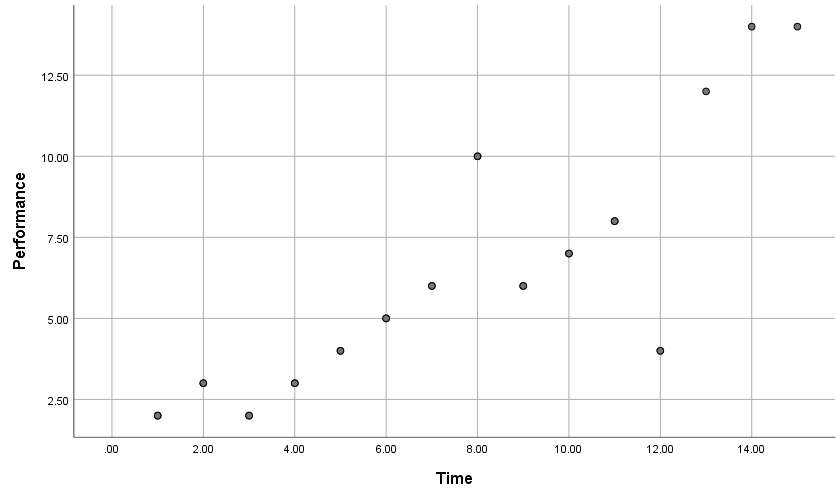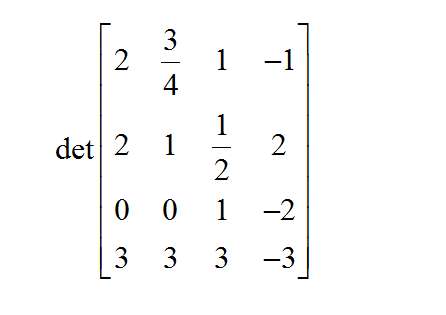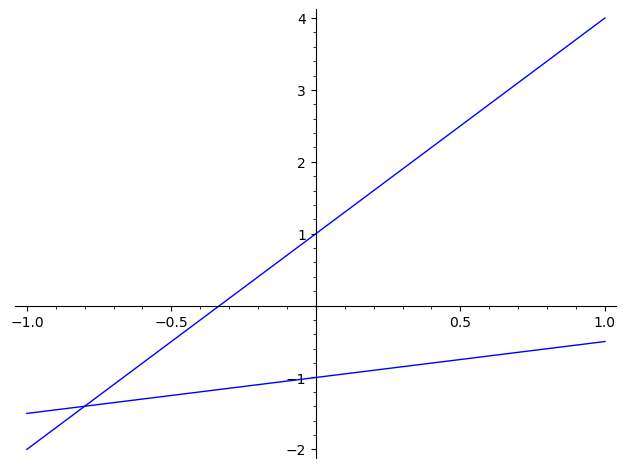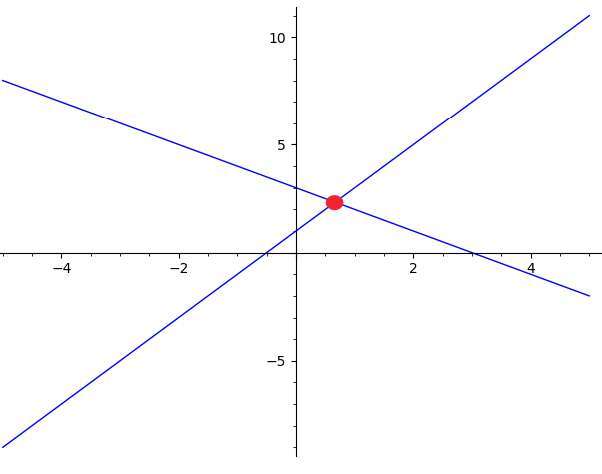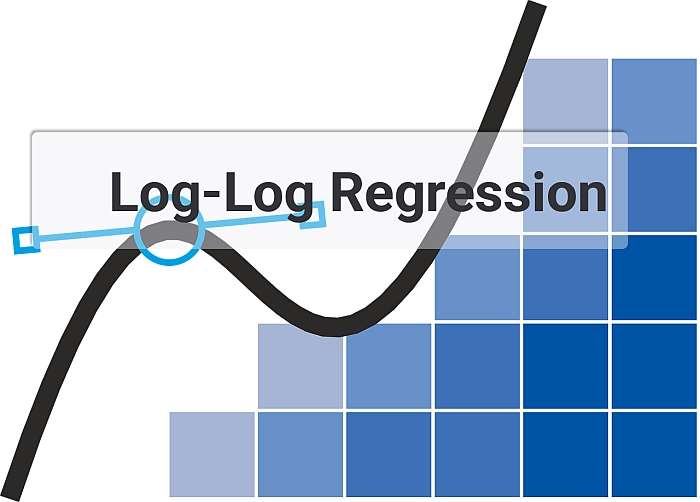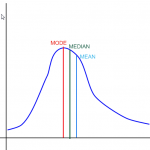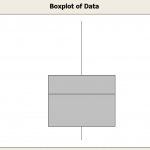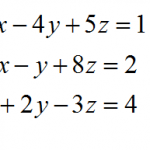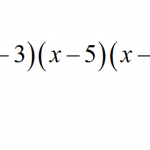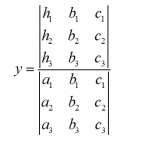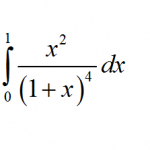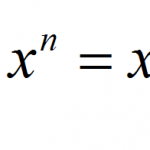Mathcracker bietet eine Vielzahl von Statistik-Taschenrechner, die für Sie schrittweise Berechnungen durchführen.Solche Rechner kommen in allen Formen und Formen, einige sind sehr einfach
(wie zum Beispiel einfach
Kombinatorische Koeffizientenberechnien)
und einige leitende Berechnungen
(wie ein nicht parametrischer statistischer Test).
Ein großer Vorteil unserer Online-Rechner / der Löser ist, dass wir versuchen, wann immer dies möglich zu sein, ein vollständiges schrittweise Detail, wie er in die erforderliche Lösung ankommt.
Wir glauben, dass alle Schritte, wie man an der Lösung angekommen ist, der beste Weg ist (und manchmal der einzige Weg), um ein Thema zu lernen.
Es gibt viele Wahrscheinlichkeitsrechner (einschließlich Rechner für die häufigsten Verteilungen, wie Normal, die T-Distribution, die F-Distribution usw.), a
Komplette Auswahl der Hypothesen-Testlöser für parametrische und nicht parametrische Tests.
Wie finde ich den Statistik-Rechner, nach dem ich suche?
Überprüfen Sie unsere Liste unten von Statistikern, oder Sie können auch das mitgelieferte Suchfeld verwenden, um den genauen Rechner zu finden, den Sie suchen.Jeder Solver wird mit klaren Anweisungen darüber geliefert, wie der Solver verwendet werden soll.Einige Taschenrechner verfügen auch über verfügbare Videos, die Ihnen helfen, weiterzumachen, wenn Sie Probleme haben.
Unser Ziel ist es, die vollständigste Sammlung von Math-Rechner online zu haben, und wenn ich Mathe sage, dann meine ich, dass wir nicht nur Statistikkalchierer haben, sondern auch Algebra, Wahrscheinlichkeit und viele andere Fächer.Wenn es einen Solver gibt, den Sie auf unserer Website nicht finden und Sie hier sehen möchten, zögern Sie bitte nicht
kontaktiere nicht
.
Überprüfen Sie die Statisträter, die wir zur Verfügung haben
Instructions: This Negative Predictive Value Calculator computes the negative predictive value (NPV) of a test, ...
Instructions: This Positive Predictive Value Calculator computes the positive predictive value (PPV) of a test, ...
Instructions: This Specificity Calculator computes the specificity of a test, showing step-by-step all calculation. To ...
Instructions: This Sensitivity Calculator computes the sensitivity of a test, showing all the steps. To that end, ...
Instructions: Use this Covariance Calculator to find the covariance coefficient between two variables (X) and (Y) that ...
Instructions: This Deviation Score Calculator will compute the deviation with respect to the mean for a sample of data ...
Instructions: Use this one to calculate the percentile from the mean and standard deviation. Please provide the ...
Instructions: This Degrees of Freedom Calculator will calculate the number of degrees of freedom for paired samples of ...
Instructions: This Degrees of Freedom Calculator will indicate the number of degrees of freedom for two samples of, ...
Instructions: This Degrees of Freedom Calculator will indicate the number of degrees of freedom for one sample of, ...
Instructions: This interquartile range calculator will calculate the IQR, showing step-by-step calculations, for a ...
Instructions: This decile calculator will calculate a decile that you specify, showing step-by-step calculations of ...
Instructions: This quartile calculator will calculate a quartile you specify, showing step-by-step calculations, for a ...
Instructions: You can use this Pooled Proportion Calculator to compute the pooled proportion for two sample. ...
Instructions: Use this Weighted Average Calculator to compute the weighted average of a set of values (X) and their ...
Instructions: Use this Ogive Graph Maker to construct a cumulative frequency polygon based on a sample provided in the ...
Instructions: Use this Frequency Polygon Graph Maker to construct a frequency polygon based on a sample provided in ...
Instructions: Use this Sample Variance of Grouped Data Calculator to find the sample variance for the case of grouped ...
Instructions: Use this Sample Mean of Grouped Data Calculator to find the sample mean when you have grouped data, in ...
Instructions: Use this Coefficient of Determination Calculator to compute the coefficient of determination ((R^2)) ...
Instructions: Use this Residual Plot Grapher to construct a residual plot for the value obtained with a linear ...
Instructions: Use this Regression Predicted Values Calculator to find the predicted values by a linear regression ...
Instructions: Use this Regression Residuals Calculator to find the residuals of a linear regression analysis for the ...
Instructions: The following Pie Chart Maker for raw data creates a pie chart based on sample data you provide in the ...
Instructions: Use this sample min calculator to get the minimum value (the smallest value) from all the values in a ...
Instructions: Use this Relative Frequency Graph Maker to create a bar chart with relative frequencies associated to ...
Instructions: Use Markov's Inequality calculator to estimate an upper bound of the probability of an event (Pr(X ge)) ...
Instructions: Use this Frequency Table Calculator to construct a frequency table associated with the sample provided ...
Instructions: Use this Summation Calculator to get the sum of all the values from a sample provided in the form below. ...
Instructions: Use this Standard Normal Distribution Probability Calculator to compute probabilities for the Z ...
Instructions: Use this step-by-step Bayes Rule Calculator to reverse conditional probabilities using Bayes' Theorem. ...
Instructions: This Contingency Table Calculator will help you create a contingency table (also known as crosstable) ...
Instructions: Use this Spearman's Critical Correlation Calculator to find the critical values for Spearman's ...
Instructions: Use this Multinomial Coefficient Calculator to compute showing all the steps a multinomial coefficient ...
Instructions: Use this Multiple Correlation Coefficient Calculator for a multiple linear regression. Please input the ...
Instructions: Use this step-by-step calculator for a confidence interval for the difference between two Means, for ...
Instructions: Use this step-by-step Confidence Interval for Mean Calculator, with unknown population variance, by ...
Instructions: Use this step-by-step Confidence Interval for Mean Calculator, with known population variance, by ...
Instructions: Use this step-by-step calculator for a confidence interval for the difference between two Means, for ...
Instructions: Use this step-by-step Confidence Interval for the Difference Between Proportions Calculator, by ...
Instructions: Use this step-by-step Confidence Interval for Ratio of two Variances Calculator ((displaystyle frac ...
Instructions: Use this step-by-step Confidence Interval for Proportion Calculator, by providing the sample data in the ...
Instructions: Use this step-by-step Confidence Interval for Variance and Standard Deviation Calculator, by providing ...
Instructions: Use this Sample Variance Calculator to compute, showing all the steps the sample variance (s^2), using ...
Instructions: Use this Z-score to T-score Calculator to transform a z-score into a T-score (this is capital "T"). ...
Instructions: Use this residual sum of squares to compute (SS_E), the sum of squared deviations of predicted values ...
Instructions: Use this regression sum of squares calculator to compute (SS_R), the sum of squared deviations of ...
Instructions: Use this Raw Score Calculator to transform a z-score into a raw score. Please provide the information ...
Instructions: This Sum of Squares Calculator will help you compute the sum of squares associated to a set of sample ...
Instructions: This Percentile to Z-score Calculator will compute the z-score associated to a given percentile that is ...
Instructions: This Z-Score to Percentile Calculator will compute the percentile associated to a Z-score that is ...
Instructions: Use this Law of Multiplication calculator to compute the probability (Pr(A cap B)). Please provide the ...
Instructions: Use this Law of Addition calculator to compute the probability (Pr(A cup B)). Please provide the ...
Instructions: Use this Conditional Probability calculator to compute the conditional probability (Pr(A | B)). Please ...
Instructions: Use this step-by-step Total Probability Rules calculator to compute the probability of an event (A), ...
Instructions: This calculator allows you to use the Maximax criterion (also known as optimistic criterion) to make a ...
Instructions: Use this prediction interval calculator for the mean response of a regression prediction. Please input ...
Instructions: Use this confidence interval calculator for the mean response of a regression prediction. Please input ...
Instructions: Enter the sample data below and this calculator will provide step-by-step calculation of the Five Number ...
Instructions: Use this calculator to compute Chi-Square distribution probabilities. Please type in the number of ...
Instructions: Use this calculator to compute F-distribution probabilities. Please type in the degrees of freedom ) ...
Instructions: Enter the sample data below and this calculator will provide step-by-step calculation of the Mean ...
Instructions: Use this calculator to compute the adjusted R-Squared coefficient from the R-squared coefficient. Please ...
Instructions: Use this calculator to compute the adjusted R-Squared coefficient for a multiple linear regression. ...
Instructions: Use this calculator to compute the adjusted R-Squared coefficient for a simple linear regression. Please ...
Instructions: Use this calculator to estimate the effect of a finite population on the calculation of the standard ...
Instructions: Use this calculator to compute probabilities associated to the sampling distribution of the sample ...
Instructions: Use this McNemar test calculator calculator to compute the results of applying McNemar's procedure to ...
Instructions: Enter the sample data below and this calculator will provide step-by-step calculation of the Mean ...
Instructions: Enter the sample data below and the solver will provide step-by-step calculation of the Mid-Range, using ...
Instructions: You can use step-by-step calculator to get the mean ((mu)) and standard deviation ((sigma)) associated ...
Instructions: You can use this Multiple Linear Regression Calculator to estimate a linear model by providing the ...
Instructions: You can use this Multiple Linear Regression Calculator to estimate a linear model by providing the ...
Instructions: You can use this Probability to Odds Calculator to compute the odds for the occurrence of an event, ...
Instructions: You can use this Odds to Probability Calculator to compute the probability of an event ((p)), given the ...
Instructions: Use this Hypergeometric Probability Calculator to compute hypergeometric probabilities using the form ...
Instructions: This tool will show you step-by-step calculations of the semi-partial correlations for three variables ...
Instructions: You can use this Partial Correlation Calculator to compute the corresponding partial Correlations for ...
Instructions: In order to use this Coefficient of Variation Calculator, please provide the sample data below and this ...
Instructions: Use this Correlation Coefficient Significance Calculator to enter the sample correlation (r), sample ...
Instructions: This correlation matrix calculator will provide you with a correlation matrix for a given set of. ...
Instructions: Use this outlier calculator by entering your sample data. This calculator will show you all the steps to ...
Instructions: Use this Normal Probability Plot maker by entering the sample data below and this statistics calculator ...
Instructions: Compute the inverse cumulative score for the standard normal probability distribution. Provide a ...
Instructions: This statistical power calculator computes, showing all the steps, the minimum required sample size ()) ...
Instructions: This power calculator computes, showing all the steps, the probability of making a type II error ()) ...
Instructions: This percentile calculator for grouped data will calculate a percentile you specify, showing step-by, ...
Instructions: This percentile calculator will calculate a percentile you specify, showing step-by-step, for a sample ...
Instructions: This effect size calculator for the t-statistic allows you to compute the value of (r^2) (r-squared) if ...
Instructions: This Chebyshev's Rule calculator will show you how to use Chebyshev's Inequality to estimate ...
Instructions: This Empirical Rule calculator will show you how to use the Empirical Rule to compute some normal ...
Instructions: You can use this permutation coefficient calculator to compute (P_{n,k}), for two given integers (n)( ...
Instructions: You can use this combinatorial coefficient calculator to compute "n choose k", or ( C_{n,k}), for two ...
Instructions: You can use this factorial calculator to compute the factorial of an integer number (n). Type the: ...
Instructions: You can use this Spearman Correlation Calculator tool to compute Spearman's Correlation Coefficient for ...
Instructions: This calculator computes the pooled variance and standard deviation for two given sample standard ...
Instructions: This Effect Size Calculator will compute the value of Cohen's d for you, showing all the steps. Please ...
Instructions: This Gamma Coefficient Calculator computes the value of Gamma, which measures the strength of the ...
Instructions: This calculator conducts a Sign Test. Please select the null and alternative hypotheses, enter the ...
Instructions: The following graphical tool creates a bar graph based on the data you provide in the boxes below. All ...
Instructions: Use this Harmonic Mean Calculator by entering the sample data below and the solver will provide step-by ...
Instructions:The following graphical tool creates a Stem-and-Leaf on the data you provide in the box below. Type the ...
Instructions: This calculator conducts a t-test for one population mean ((sigma)), with unknown population standard ...
Instructions: This calculator conducts a Chi-Square test of independence. Please first indicate the number of columns ...
Instructions: Use this Mean and Standard Deviation Calculator by entering the sample data below and the solver will ...
Instructions: This calculator conducts a t-test for two paired samples. This test applies when you have two samples ...
Instructions: Use this Confidence Interval Calculator for the population mean (mu), in the case that the population ...
Instructions: This calculator finds the minimum sample size required to estimate a population proportion ((p)) within ...
Instructions: This calculator conducts a Wilcoxon Rank Sum test for two independent samples. This test applies when ...
Instructions: Enter the sample correlation (r), sample size (n) and the significance level (alpha), and the solver ...
Instructions: This calculator conducts One-Way ANOVA for a group of samples, with the purpose of comparing the ...
Instructions: This calculator conducts a Wilcoxon Signed-Ranks Test for two paired samples. This test applies when you ...
Instructions: This calculator computes the value of Cramer's V. Please first indicate the number of columns and rows ...
Instructions: You can use this Phi Coefficient calculator by first indicating the number of columns and rows for the ...
Instructions: The following graphical tool creates a box plot on the data you provide in the boxes. You can type one ...
Instructions: This calculator conducts Kruskal-Wallis Test, which is non-parametric alternative to the One-Way ANOVA ...
Instructions: Use this T-Distribution Probability Calculator to Compute t-distribution probabilities using the form ...
Instructions: Compute critical Chi-Square values for the Chi-Square distribution using the form below. Please type the ...
Instructions: This calculator computes the value of Lambda, which measures the strength of the association between two ...
Instructions: Use this Time Series Plot Maker to create a time series plot using the form below. All you have to do is ...
Instructions: This calculator conducts a Z-test for one population mean ((mu)), with known population standard ...
Instructions: Use this Descriptive Statistics Calculator to enter the sample data below and the solver will provide ...
Instructions: Compute Poisson distribution probabilities using the form below. Please type the population mean (; ...
Instructions: This calculator conducts a Z-test for one population proportion (p). Please select the null and ...
Instructions: Compute exponential distribution probabilities using the form below. Please type the population mean ( ...
Instructions: This calculator computes the Relative Risk for a 2x2 crosstabulation, which measures the ratio of the ...
Instructions: Use our Binomial Probability Calculator to compute binomial probabilities using the form below. Please ...
Instructions: The following graphical tool creates a histogram based on the data you provide in the boxes below. All ...
Instructions: Compute critical t values for the t-distribution using the form below. Please type significance level ...
Instructions: The following graphical tool creates a box plot on the data you provide in the boxes. You can type one ...
Instructions: This calculator conducts Kruskal-Wallis Test, which is non-parametric alternative to the One-Way ANOVA ...
Instructions: Use this T-Distribution Probability Calculator to Compute t-distribution probabilities using the form ...
Instructions: Enter the sample correlation (r), sample size (n) and the significance level (alpha), and the solver ...
Instructions: This calculator conducts One-Way ANOVA for a group of samples, with the purpose of comparing the ...
Instructions: This calculator conducts a Wilcoxon Signed-Ranks Test for two paired samples. This test applies when you ...
Instructions: This calculator computes the value of Cramer's V. Please first indicate the number of columns and rows ...
Instructions: You can use this Phi Coefficient calculator by first indicating the number of columns and rows for the ...
Instructions: Compute critical z-values for the normal distribution probabilities using the form below. In order to do ...
Instructions: Use our Binomial Probability Calculator to compute binomial probabilities using the form below. Please ...
Instructions: The following graphical tool creates a histogram based on the data you provide in the boxes below. All ...
Instructions: Compute critical t values for the t-distribution using the form below. Please type significance level ...
Instructions: The following graphical tool creates a box plot on the data you provide in the boxes. You can type one ...
Instructions: This calculator conducts Kruskal-Wallis Test, which is non-parametric alternative to the One-Way ANOVA ...
Instructions: Use this T-Distribution Probability Calculator to Compute t-distribution probabilities using the form ...
Konfidenzintervallrechner des Korrelationskoeffizienten
Anweisungen:
Sie können diesen Rechner des Konfidenzintervalls für den Korrelationskoeffizienten verwenden, wenn Sie bereits die Stichprobenkorrelation kennen.Sie müssen also lediglich die Beispielkorrelation \(r\), die Stichprobengröße \(n\) und das Konfidenzniveau in der folgenden Form angeben.
Anweisungen:
Verwenden Sie diesen Taschenrechner, um eine elementare Zeilenmatrix zu generieren, die Zeile \(p\) mit einem Faktor \(a\) und row \(q\) durch einen Faktor \(b\) multipliziert und fügt sie hinzu, die die Speicherung des Faktors hinzufügt, und speichert die Speicherung desErgebnisse in Zeile \(q\).Bitte geben Sie die erforderlichen Informationen an, um die Elementarzeilenmatrix zu generieren.
Die Notation, die Sie folgen, ist \(a R_p + b R_q \rightarrow R_q \)
Anweisungen:
Verwenden Sie diesen Matrix -Determinantenrechner, um die gegebene Determinante einer Matrix zu berechnen, die alle Schritte zeigt.Klicken Sie zunächst auf eine der folgenden Schaltflächen, um die Dimension der Matrix bei Bedarf zu ändern.
Klicken Sie dann auf die erste Zelle, geben Sie den Wert ein und bewegen Sie sich um die Matrix, indem Sie "Registerkarte" drücken oder auf die entsprechenden Zellen klicken, um alle Matrixwerte zu definieren.
Anweisungen:
Verwenden Sie dieses Grafikwerkzeug, um das Diagramm von zwei von Ihnen bereitgestellten Zeilen zu zeichnen.Bitte geben Sie zwei lineare Gleichungen ein.
Anweisungen:
Verwenden Sie diesen Taschenrechner, um ein System von zwei linearen Gleichungen unter Verwendung der Substitutionsmethode zu lösen, wobei alle Schritte angezeigt werden.Bitte geben Sie zwei gültige lineare Gleichungen in die unten angegebenen Felder ein:
Anweisungen:
Verwenden Sie diesen Taschenrechner, um ein System linearer Gleichungen unter Verwendung der Eliminierungsmethode zu lösen, wobei alle Schritte angezeigt werden.Bitte geben Sie zwei gültige lineare Gleichungen in den unten angegebenen Feldern an:
Anweisungen:
Verwenden Sie diesen Taschenrechner, um ein System von zwei linearen Gleichungen unter Verwendung der grafischen Methode zu lösen.Bitte geben Sie zwei gültige lineare Gleichungen in die unten angegebenen Felder ein:
Anweisungen:
Verwenden Sie diesen Rechner, um einen t-Test mit zwei Stichproben durchzuführen, der alle Schritte anzeigt. Um den Test durchführen zu können, müssen Sie zwei unabhängige Stichproben in das nachstehende Tabellenblatt eingeben. Sie können die Daten entweder eintippen oder einfach aus Excel einfügen.
Anweisungen:
Verwenden Sie diesen z-Test-Rechner für zwei Stichproben, um die Ergebnisse eines t-Tests für zwei Stichproben zusammen mit den entsprechenden Standardabweichungen der Grundgesamtheit zu ermitteln. Bitte geben Sie die erforderlichen Informationen unten ein
Anweisungen:
Verwenden Sie diesen Rechner, um den Stichprobenanteil bei einer bestimmten Anzahl günstiger Fälle und einer bestimmten Anzahl von Gesamtfällen zu berechnen. Bitte geben Sie die erforderlichen Informationen in die folgenden Formulare ein:
Anweisungen:
Verwenden Sie diesen Bruchrechner, um alle von Ihnen gewünschten Bruchoperationen oder Berechnungen durchzuführen. Dabei werden alle Schritte angezeigt. Geben Sie den Ausdruck, den Sie ausführen möchten, bitte in das Formularfeld unten ein.
Anweisungen:
Verwenden Sie diesen Rechner, um ein Log-Log-Regressionsmodell zu schätzen, das alle Schritte anzeigt. Geben Sie die Daten für die Variablen X und Y bitte in die folgende Tabelle ein oder fügen Sie sie ein:
Anweisungen:
Verwenden Sie diesen Rechner, um die Preiselastizität für Beispieldaten zu berechnen, die Ihnen zum Preis und zur nachgefragten Menge eines Gutes vorliegen. Geben Sie Ihre Daten bitte in die folgende Tabelle ein oder fügen Sie sie ein.
Anweisungen:
Verwenden Sie den Elastizitätsrechner, um die Bogenelastizitätsformel anhand von zwei Preispunkten und den entsprechenden nachgefragten Mengen anzuwenden. Geben Sie die erforderlichen Informationen bitte in die Felder unten ein.
Anweisungen:
Verwenden Sie diesen Rechner, um die Bogenelastizitätsformel für eine Wertetabelle mit Preis (P) und nachgefragter Menge (Q) zu berechnen. Geben Sie Ihre Daten bitte in die folgende Tabelle ein oder fügen Sie sie ein.
Anweisungen:
Verwenden Sie diese Elastizitätsberechnung aus der Nachfrage, um Ihr Angebot zu berechnen. Dabei werden alle Schritte angezeigt. Geben Sie den Ausdruck, den Sie ausführen möchten, bitte in das Formularfeld unten ein.
Wenn Sie einen Vorschlag haben oder einen defekten Löser / Taschenrechner melden möchten, zögern Sie bitte nicht
kontaktiere uns
.

























































































